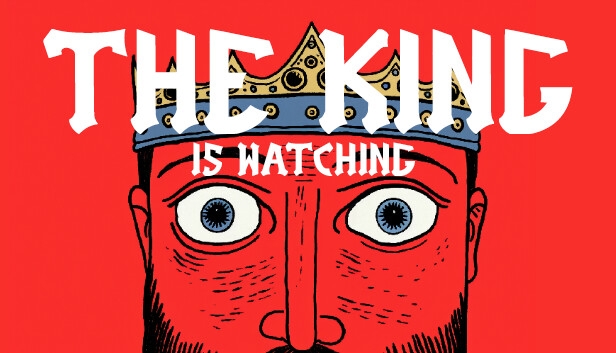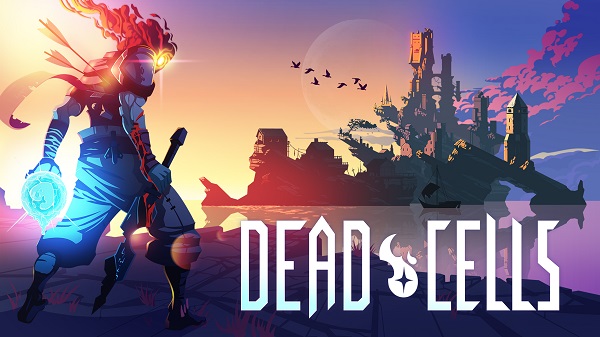Call of Duty is a franchise that has become synonymous with first-person shooters since its inception in 2003. Developed initially by Infinity Ward and published by Activision, the series has evolved through various historical periods and settings, including World War II, the Cold War, and modern warfare. With each new installment,
Call of Duty has pushed the boundaries of gameplay mechanics, storytelling, and multiplayer experiences, making it a staple in the gaming community. This article will delve into the franchise's origins, key features, gameplay mechanics, various game modes, and community engagement, culminating in an analysis of its pros and cons along with a final rating.
The Origins of Call of Duty
Development and Concept
The
Call of Duty franchise was first launched in October 2003, focusing on World War II battles. Developed by Infinity Ward, the game aimed to provide an immersive experience that combined cinematic storytelling with realistic combat mechanics. The success of the original game led to several sequels and spin-offs, each expanding the narrative and gameplay elements.
Initial Release and Reception
Upon its release, the original
Call of Duty received critical acclaim for its engaging single-player campaign and multiplayer modes. It set the stage for future installments, leading to the development of
Call of Duty: United Offensive, which further solidified the franchise's popularity. The game's combination of intense gameplay and historical accuracy resonated with players, establishing a strong fan base.
Evolution of the Franchise
Transition to Modern Warfare
With the release of
Call of Duty 4: Modern Warfare in 2007, the franchise underwent a significant transformation. This installment shifted the focus from historical warfare to contemporary conflicts, introducing new gameplay mechanics and a gripping narrative.
- Innovative Gameplay: Modern Warfare introduced features like customizable loadouts and perks, allowing players to personalize their gameplay experience.
- Engaging Storyline: The campaign featured a compelling narrative that explored themes of loyalty, betrayal, and the complexities of modern warfare.
This shift in focus attracted a new generation of players, expanding the franchise's appeal.
The Rise of Multiplayer
The multiplayer component of
Call of Duty has always been a significant draw, but it reached new heights with
Modern Warfare. The game's online mode introduced competitive elements that encouraged teamwork and strategy.
- Diverse Game Modes: Players could engage in various modes, including Team Deathmatch, Capture the Flag, and Search and Destroy, catering to different play styles.
- Community Engagement: The introduction of leaderboards and matchmaking systems fostered a competitive community, encouraging players to hone their skills.
The emphasis on multiplayer helped
Call of Duty become a dominant force in the gaming industry.
Gameplay Mechanics
Core Mechanics
The gameplay mechanics of
Call of Duty are characterized by fast-paced action, precise shooting, and tactical gameplay. Players can expect a blend of realism and arcade-style shooting.
- Gunplay: The shooting mechanics are intuitive, allowing players to quickly pick up the controls while providing depth for experienced players.
- Movement Mechanics: Players can sprint, crouch, and slide, adding layers to movement strategies during combat.
These core mechanics contribute to the franchise's enduring popularity.
Killing Mechanics and Scorestreaks
Killing mechanics in
Call of Duty are designed to reward players for their skill and strategic gameplay.
- Killstreaks and Scorestreaks: Players can earn rewards for achieving multiple kills without dying, unlocking powerful abilities and equipment. This encourages aggressive playstyles while rewarding players for skillful gameplay.
- Customization: Players can customize their loadouts, choosing weapons, perks, and equipment that suit their play style, adding a strategic layer to the game.
These mechanics create a dynamic environment where players can adapt their strategies based on their performance.
Game Modes
Campaign Mode
The campaign mode in
Call of Duty has been a hallmark of the franchise, offering players an immersive narrative experience.
- Cinematic Storytelling: Each installment presents a unique storyline that often reflects real-world conflicts, exploring themes of heroism, sacrifice, and moral ambiguity.
- Engaging Characters: Players encounter memorable characters, each with their own motivations and arcs, enhancing the emotional depth of the story.
The campaign mode allows players to experience the narrative and gameplay that the franchise is known for.
Multiplayer Mode
Multiplayer is where
Call of Duty truly shines, offering a variety of game modes that cater to different player preferences.
- Classic Modes: Modes like Team Deathmatch and Free-for-All have become staples, providing straightforward competitive gameplay.
- Objective-Based Modes: Modes such as Domination and Search and Destroy require teamwork and strategy, encouraging players to work together to achieve objectives.
The multiplayer experience keeps players engaged and returning for more, thanks to its competitive nature and variety of options.
Warzone and Battle Royale
With the introduction of
Call of Duty: Warzone in 2020, the franchise embraced the battle royale genre, offering a free-to-play experience that attracted millions of players.
- Large-Scale Battles: Warzone features massive maps where up to 150 players can compete, combining traditional Call of Duty mechanics with new battle royale elements.
- Plunder Mode: This mode allows players to collect cash and complete contracts, adding an alternative competitive experience outside of standard battle royale gameplay.
Warzone has revitalized interest in the franchise, appealing to both longtime fans and newcomers.
Visuals and Sound Design
Graphics and Art Style
Over the years,
Call of Duty has consistently pushed the boundaries of graphics and visual fidelity. Each new installment showcases advancements in technology and design.
- Realistic Environments: The game features highly detailed environments that enhance immersion, from war-torn cities to expansive battlefields.
- Character Models: The character models are meticulously designed, with lifelike animations that contribute to the overall experience.
These visual elements create an engaging and immersive atmosphere for players.
Sound Design
Sound design plays a crucial role in
Call of Duty, enhancing the gameplay experience through audio cues and effects.
- Realistic Sound Effects: From gunfire to footsteps, the sound effects are designed to reflect real-world physics, providing players with essential audio feedback during combat.
- Voice Acting: The campaigns feature professional voice acting that adds depth to characters and enhances the overall narrative.
Effective sound design contributes to the immersive experience of
Call of Duty.
Community Engagement
Esports Scene
The
Call of Duty franchise has a vibrant esports scene, with professional leagues and tournaments drawing significant attention.
- Call of Duty League (CDL): Established in 2020, the CDL features professional teams competing in various seasons, showcasing the best players in the world.
- Community Tournaments: Players can participate in community-run tournaments, further fostering engagement within the player base.
The esports scene adds a competitive edge to the franchise, encouraging players to improve and engage with the community.
Community Feedback and Updates
Activision actively listens to community feedback, implementing changes and updates based on player input.
- Regular Updates: The franchise receives frequent updates that address balance issues, gameplay mechanics, and new content, keeping the game fresh and engaging.
- Player Engagement: Community events and challenges encourage players to participate and earn rewards, enhancing the overall experience.
These efforts demonstrate a commitment to maintaining a healthy and engaged player community.
Monetization Strategies
Pricing Model
Call of Duty typically follows a premium pricing model, requiring players to purchase each new installment. This approach has remained consistent since the franchise's inception.
In-Game Purchases
In addition to the initial purchase, the franchise features microtransactions for cosmetic items and battle passes.
- Cosmetic Items: Players can purchase skins, weapon variants, and other cosmetic enhancements that do not affect gameplay balance.
- Battle Pass: The seasonal battle pass offers exclusive rewards and challenges, providing players with incentives to engage with the game.
This monetization model allows players to customize their experience while maintaining a balanced competitive environment.
Expanding the Game
Future Updates and Content
Activision has a roadmap for continuous updates and new content releases for
Call of Duty, ensuring that the franchise evolves over time.
- New Installments: Each year, a new title is released, often introducing new gameplay mechanics, storylines, and multiplayer features.
- Seasonal Events: Seasonal events provide limited-time challenges and rewards, encouraging players to return for new experiences.
These updates keep the community engaged and contribute to the game's longevity.
Potential for Future Titles
As the
Call of Duty franchise continues to grow, the potential for future titles remains high. Activision may explore new settings, narratives, and gameplay mechanics to keep the series fresh and appealing.
Conclusion
In conclusion,
Call of Duty has established itself as a leading franchise in the first-person shooter genre since its inception. With its engaging gameplay mechanics, compelling narratives, and vibrant community, the series offers a unique and rewarding experience for players of all skill levels. While
Call of Duty has its strengths—such as its multiplayer offerings and immersive campaigns—there are also challenges, including the monetization model and the potential for franchise fatigue. As
Call of Duty continues to evolve, it promises to deliver even more exciting experiences for gamers around the world.
Final Rating
Overall,
Call of Duty deserves a rating of 4.6 out of 5 for its exceptional gameplay, engaging narratives, and community involvement, with minor points deducted for its monetization strategies and potential fatigue.































